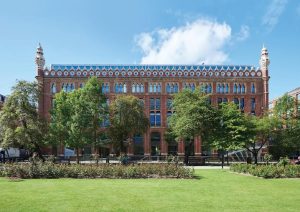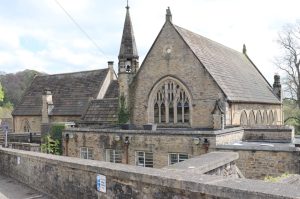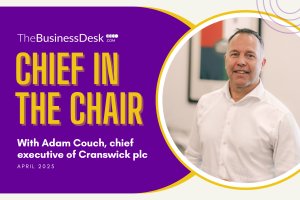Property Focus: The Weekly Interview

Paula Dillon is a partner at law firm Addleshaw Goddard in Leeds. Dillon has extensive experience of advising a wide variety of clients on all types of development, joint ventures and real estate finance deals as well as portfolio property transactions and management.
Her clients include developers, landowners, retailers, portfolio owners, lenders and investors. She is ranked by Chambers as one of the top three Real Estate lawyers in Yorkshire and is a former Yorkshire Property Lawyer of the Year.
Current projects include Bridgewater Place in Leeds and a number of city centre redevelopments, and her clients include the Stadium Group, the Gregory Group, Landmark Developments, PPG Land, Opera North and Northern Ballet Theatre.
1. Apart from your work at Addleshaw Goddard, what other roles do you have within the Yorkshire region?
“I represent our firm in a number of initiatives, including Location Leeds and Marketing Leeds. What they have in common are great groups of business people who come together to try to promote Leeds.
“I'm a founder member of the annual Variety Club Yorkshire Property Awards committee, as well as the Leeds Property Quiz and charity event The Crypt Factor, which raise money for Leeds-based homeless charity St George's Crypt and RICS's charity Lionheart.
“In all of these events we're trying to put something back. The support that these events get makes me immensely proud of the property industry. It's a generous industry and it's one that takes its responsibilities seriously but it's also an industry that likes to have fun, and one where people can do the hardest deals with each other but still remain friendly and supportive of each other.”
2. What are your views of the current state of the commercial property and property development markets?
“Uncertainty at this stage. That in itself is affecting deals, as people do not know which way the market is going to move and are nervous about commiting themselves. Obviously there is also a lack of funds but in situations where a bank had agreed to lend to certain clients but has pulled away, we are finding that there are other banks stepping into the breach.
“At an IPF talk last year, one of the presenters said that a downturn would see the renaissance of the true property professional, and I think that is happening. The people who know the true value and potential of property are still there, and some are finding it easier to get deals because they are not being outbid by idiots.”
3. What key challenges and pieces of legislation do you think will most affect your sector over the coming months?
“I think that the Empty Rates legislation will be a big challenge and will impact on speculative builds in all locations, but especially disadvantaged areas.
“Allegedly it is designed to prevent property owners from leaving buildings empty and to encourage job creation. I think it will do the opposite and stifle speculative building. I don't know any property owner who would leave a building vacant if there was a deal to be done which did not lose them money.
“In the legal market, as things get tighter property owners are, more than ever, looking for ways to structure deals to maximise returns and saleability in a
difficult market.
“We are seeing more complex, structured work going through that would normally be a straightforward transaction. Increasingly, being a full service practice is essential.”
4. Why do you think Yorkshire is a good place to do business?
“There's a grit and determination about Yorkshire people which has helped to ensure that they tend not to get carried away when things are going well and start making silly decisions, but also that they keep going when things are not going as well.”
5. Apart from the developments you have been involved in, which is your favourite building in Yorkshire and why?
“St Peter's Church in Thorner, West Yorkshire. I love the view of the church tower as you walk up Main Street and have spent many happy hours with my son in the childrens' playground next door to it.”
6. If you could improve anything in the region, what would it be?
“Infrastructure is a major obstacle, not just for Leeds but for the whole region. It should not be the case that when you set off for Manchester by road you're not sure if it's going to take you 40 minutes or two hours and 40 minutes. We need much better public transport in Leeds and better connections with Bradford, Hull, Sheffield and Manchester if we are going to compete as individual cities, or as a region.
“Related to that is the Northern Way. It was launched to great fanfare, but I am not sure how connected it is with the concerns of the business people in the region. Where is the thought leadership coming from on this? Where is the funding to make it happen? Do our local authorities and MPs believe that it is right for our region, or not? Assuming that they do, who will articulate and drive what is required of each stakeholder, both public and private, to help make it work? I think that's a big challenge for the region and I'd like to see more information and debate on it.”
7. What barriers have you had to overcome during your career and how have you overcome them?
“At one time being female might have been regarded as a barrier. I did what every other working woman I know has done, which was to use the time I could have spent whingeing about it to just get on with my job.”
8. What was your first job and how did you enter your current line of work?
“My very first job was as a Saturday girl in a Liverpool department store. They always sent me to deal with difficult or drunken customers, because although I was absolutely terrified I never let it show and it seemed to calm them all down.
“Having done an Arts degree, I became interested in the law and came to Leeds after qualifying in Manchester, because my ex-husband moved from the BBC to YTV. I have never looked back, and I am really fortunate in that I have always loved my job.
“Even when things have been extremely stressful or challenging, the approach I adopted as a Saturday girl, of gritting teeth and getting on with it, has stood me in good stead.”
9. What do you most enjoy about your job?
“There's the intellectual challenge which, even if it doesn't keep me awake at night, keeps me on my toes. It also has to be about the quality of the
people I work with and the relationships I have formed working with them over many years.”
10. What are the best and worst pieces of advice you've ever been given?
“The worst advice was a senior male colleague telling me that I should not use the salutation 'Ms', as it would hold me back in my career and make
people think I am a lesbian. I didn't take the advice and it is for others to judge whether or not he was right!
“The best advice would have to be 'you cannot control what life throws at you, but you can control how you deal with it'.”








